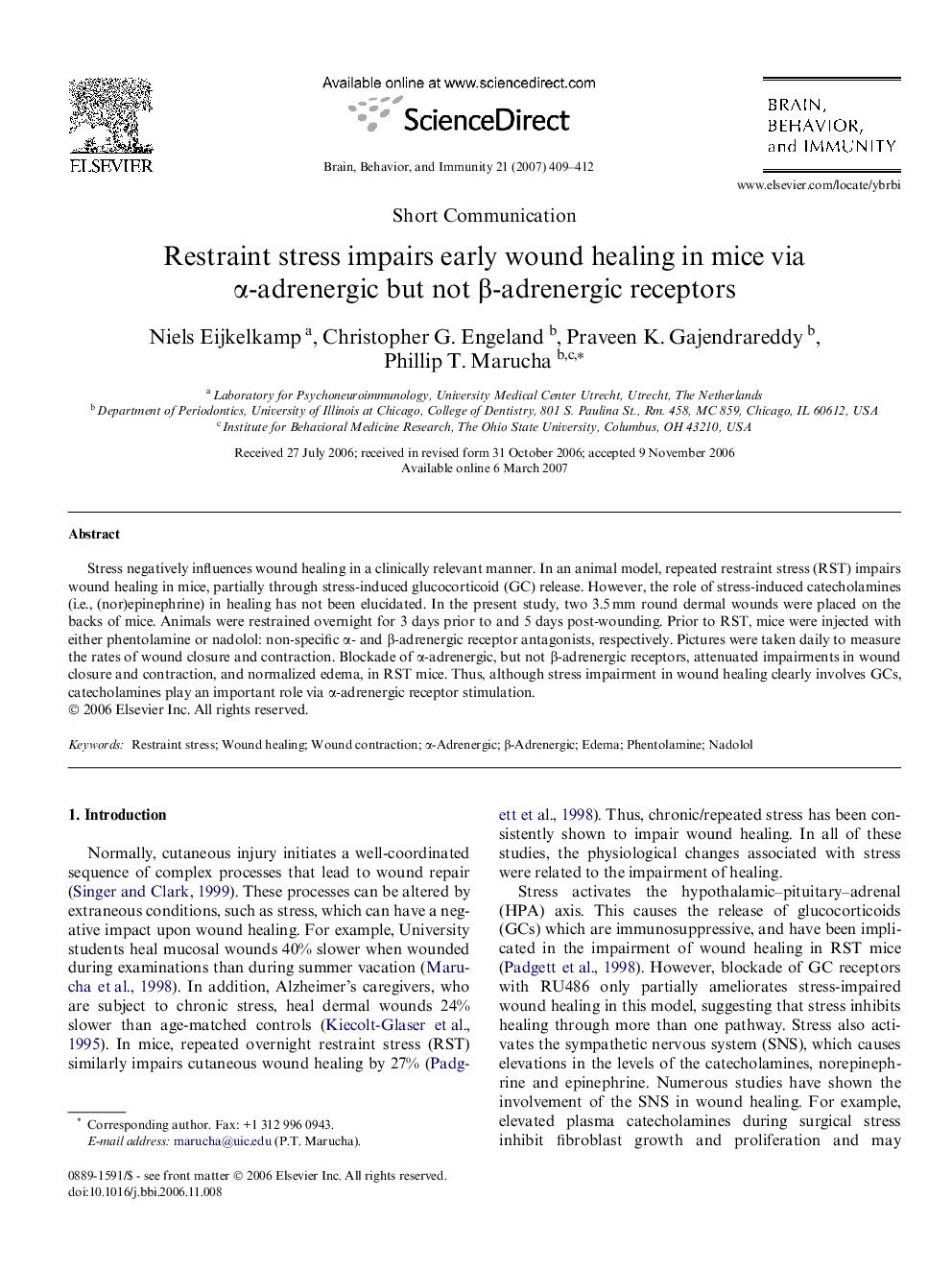| کد مقاله | کد نشریه | سال انتشار | مقاله انگلیسی | نسخه تمام متن |
|---|---|---|---|---|
| 923433 | 921084 | 2007 | 4 صفحه PDF | دانلود رایگان |

Stress negatively influences wound healing in a clinically relevant manner. In an animal model, repeated restraint stress (RST) impairs wound healing in mice, partially through stress-induced glucocorticoid (GC) release. However, the role of stress-induced catecholamines (i.e., (nor)epinephrine) in healing has not been elucidated. In the present study, two 3.5 mm round dermal wounds were placed on the backs of mice. Animals were restrained overnight for 3 days prior to and 5 days post-wounding. Prior to RST, mice were injected with either phentolamine or nadolol: non-specific α- and β-adrenergic receptor antagonists, respectively. Pictures were taken daily to measure the rates of wound closure and contraction. Blockade of α-adrenergic, but not β-adrenergic receptors, attenuated impairments in wound closure and contraction, and normalized edema, in RST mice. Thus, although stress impairment in wound healing clearly involves GCs, catecholamines play an important role via α-adrenergic receptor stimulation.
Journal: Brain, Behavior, and Immunity - Volume 21, Issue 4, May 2007, Pages 409–412